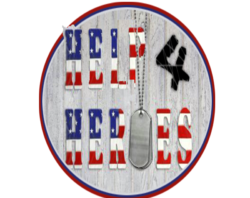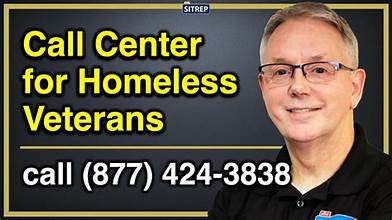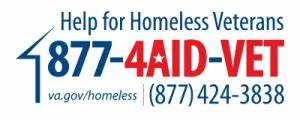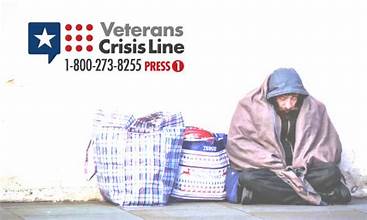
Frequently Asked Questions (FAQ)
- What is Help4Heroes.org? Help4Heroes.org is a nonprofit organization dedicated to supporting veterans who are facing homelessness or financial struggles. We provide a range of services and resources to help veterans get back on their feet and lead fulfilling lives after their service to our country.
- What services does Help4Heroes.org offer? We offer a variety of services to meet the needs of veterans, including housing assistance, financial counseling, job training and placement, mental health support, and access to healthcare resources. Our goal is to provide comprehensive support to veterans and their families as they transition to civilian life.
- Who is eligible for assistance from Help4Heroes.org? Our services are available to all veterans who have served in the military, regardless of branch or length of service. We also offer support to veterans’ families who may be struggling as a result of their loved one’s service.
- How can I get help from Help4Heroes.org? If you are a veteran in need of assistance, we encourage you to reach out to us through our website or contact our office directly. Our team will work with you to assess your needs and connect you with the appropriate resources and support services.
- How can I support Help4Heroes.org? There are several ways you can support our organization and the veterans we serve. You can make a donation through our website, volunteer your time and expertise, or help us spread the word about our mission and programs. Every contribution, big or small, makes a difference in the lives of veterans in need.
- How do I become a volunteer or board member? If you’re interested in volunteering with Help4Heroes.org or joining our board of directors, please visit our website to learn more about available opportunities and fill out an application. We welcome individuals with a passion for supporting veterans and a commitment to making a positive impact in their lives.
- Is Help4Heroes.org affiliated with the government or military? Help4Heroes.org is an independent nonprofit organization and is not affiliated with the government or military. However, we work closely with government agencies, veterans’ organizations, and other community partners to ensure that veterans receive the support and assistance they need.
- Is my donation to Help4Heroes.org tax-deductible? well… Help4Heroes.org is not a registered 501(c)(3) nonprofit organization yet, so your donation is not tax-deductible, but we are recognized as a charity non-profit organization and we have begun the 501(c)(3) process. We are also looking for a fiscal sponsor who can accept tax deductible donations on our behalf. We will update you on our status when it changes. Update– we are applying for tax exempt status, so any donations made after Feb. 1, 2024 will be grandfathered in as tax exempt as soon as we are approved.
- How can I stay updated on Help4Heroes.org’s work and impact? You can stay updated on our organization’s latest news, events, and impact stories by subscribing to our newsletter, following us on social media, and visiting our website regularly. We also encourage you to reach out to us with any questions or feedback you may have.
- What is Help4Heroes EIN? We are registered as a nonprofit with the IRS, our EIN or tax ID number is 99-0836759.
- Does Help4Heroes Accept CashApp? Yes! We do accept CashApp! our cashtag is $help4heroes1
FAQ About Veteran’s Benefits
Q. What is the definition of “Veteran”?
A. § 101(2) provides: The term “veteran” means a person who served in the active military, naval, or air service, and who was discharged or released therefrom under conditions other than dishonorable.
Q. How long do you have to serve in the military to be considered a veteran?
A. A minimum service requirement exists. Service members must have served a minimum of 24 months of active duty to be considered a veteran. If the service member becomes disabled because of their time in the service, there is no minimum length of service to qualify for VA benefits.
Q. What can disqualify someone from receiving VA benefits?
A. Absence without official leave (AWOL) for a continuous period of 180 days or more, without compelling circumstances to warrant such prolonged unauthorized absence (as determined by VA). This means that if an individual is discharged for any of the above reasons, the law prohibits VA from providing any benefits.
Q: What criteria does VA use to determine the character of discharge with respect to eligibility for VA
benefits?
A: A discharge characterized by the military as under honorable conditions is binding on VA and
allows for VA to provide benefits if other eligibility requirements are met. If a discharge was not
characterized as under honorable conditions, benefits are not payable unless VA determines the
discharge was “under conditions other than dishonorable.” By law, certain situations resulting in a
discharge under less than honorable conditions constitute a legal bar to the payment of benefits.
Q: What situations constitute a statutory bar to the payment of VA benefits?
A: Under the law (38 U.S.C. § 5303), a release or discharge for any of the following reasons
constitutes a statutory bar to benefits, unless it is determined that the Servicemember was insane at
the time he/she committed the offense that resulted in the discharge:
- sentence of a general court-martial
- being a conscientious objector who refused to perform military duty, wear the uniform, or
otherwise comply with lawful orders of competent military authority. - desertion
- resignation by an officer for the good of the service
- absence without official leave (AWOL) for a continuous period of 180 days or more, without
compelling circumstances to warrant such prolonged unauthorized absence (as determined by
VA). - requesting release from service as an alien during a period of hostilities, or
This means that if an individual is discharged for any of the above reasons, the law prohibits VA from
providing any benefits.
Q: Are there other situations, in addition to the statutory bars, in which the nature of discharge may
prevent payment of VA benefits?
A: Yes. As established by VA regulation 38 CFR § 3.12(d), an individual’s character of discharge is
considered to have been issued “under dishonorable conditions” if he/she was released under any of
the following circumstances: - acceptance of an undesirable discharge to escape trial by general court-martial
- mutiny or spying
- an offense involving moral turpitude (generally including conviction of a felony)
- willful and persistent misconduct, or
- homosexual acts involving aggravating circumstances or factors affecting the performance of
duty, e.g. child molestation, homosexual prostitution, homosexual acts or conduct
accompanied by coercion or assault, and homosexual acts or conduct when a service member
has taken advantage of his or her superior rank, grade, or status.
Before making a character-of-discharge determination, VA reviews facts and circumstances
surrounding the incident(s) that led to the discharge, as reported by the military, as well as any
supporting evidence furnished by the claimant or obtained from third parties. On a case-by-case
basis, VA determines whether the incidents that led to the discharge may be found to have been
“under conditions other than dishonorable,” and thus whether basic eligibility for VA benefits can be
established.
Q: What if the individual in question had more than one period of active military service?
A: A discharge found by VA to have been issued under dishonorable conditions does not, in and of
itself, bar an individual from receiving VA benefits based on a separate period of service which
terminated under honorable conditions. In addition, the law provides for basic eligibility for benefits
based on completion of the full term of an enlistment even if no discharge was issued at the
completion of that period of service due to enlistment or reenlistment. For example, if an individual
enlisted for three years, completed the three years and reenlisted for two more years, then received a
discharge under other than honorable conditions during the second enlistment, VA benefits may be
provided based on the first period of service, even if it is determined that the character of discharge of
the second period of service is a bar to benefits. However, disability compensation would be payable
only for disabilities incurred during the first period of service, not for disabilities that were incurred
during the second period of service.
Q: Are VA health care benefits available when disability compensation cannot be paid due to a discharge
“under other than honorable conditions”?
A: Yes, in some situations: If an individual received a discharge “under other than honorable
conditions,” he or she may still be eligible for treatment at a VA medical facility for disabilities
determined to be service connected, unless the individual is subject to one of the statutory bars to
benefits specified in 38 U.S.C. § 5303.
Q: When does VA consider the character of discharge?
A: VA does not consider character of discharge until it receives a claim for benefits. A claim for
benefits may be in the form of a request for medical treatment received at a VA medical facility, or it
may be an application for compensation or pension received at a VA regional office. VA cannot make
a final decision regarding entitlement to benefits until the character-of-discharge issue is resolved.
Contact us: www.va.gov 1-800-827-1000
Benefits Assistance Service – March 2014
Q: How is an application for benefits submitted to VA?
A: An individual may visit a VA medical center to apply for medical treatment or may apply on-line,
by mail, or over the phone. If available records do not show a discharge under honorable conditions,
the medical center may defer treatment pending a decision by the local VA regional office regarding
the character of discharge, although emergency treatment may be provided based on a tentative
determination of eligibility.
A claim for compensation for service-connected disabilities is normally submitted to a VA regional
office, using an application form. Claimants may apply online through eBenefits, or they may mail the
application or personally deliver it to a VA office.
Q: How are claims involving a character of discharge issue processed?
A: VA submits a request to the appropriate service department for verification of an individual’s
character of discharge and facts and circumstances surrounding the incident(s) resulting in the
discharge. Simultaneously, VA sends a letter to the claimant asking the claimant to furnish any
evidence or statements pertaining to the discharge
When requested Federal and/or private records have been received, or efforts to obtain them have
been exhausted, VA reviews all available evidence of record to determine whether the discharge was
“under conditions other than dishonorable”. VA then documents its determination in a format
referred to as an administrative decision.
Q: How is the evidence obtained?
A: VA requests relevant service records, to include facts and circumstances surrounding the
incident(s) resulting in the discharge, from the appropriate service department. VA concurrently
sends a letter to the claimant, which invites him/her to furnish any statements or evidence that may
shed light on any extenuating circumstances regarding the other-than-honorable discharge. The
claimant typically submits evidence via mail or hand delivers it to a VA office. A claimant may also
request a hearing for the purpose of presenting evidence. The hearing is held at a VA regional office.
Contact us: www.va.gov 1-800-827-1000
Benefits Assistance Service – March 2014
VA also offers assistance to the claimant for obtaining third-party evidence. The claimant must
provide a signed release of information, the name and mailing address of the third party, and the type
of information to be released. While it is still the claimant’s responsibility to ensure the evidence is
provided, VA will use the release of information and attempt to obtain evidence on behalf of the
claimant.
Q: What does VA consider when determining the character of discharge or whether there is a bar to
benefits?
A: VA reviews military service records, including facts and circumstances surrounding the incident(s)
leading to the discharge. VA also considers the following when making its determination: - any mitigating or extenuating circumstances presented by the claimant
- any supporting evidence provided by third parties who were familiar with the circumstances
surrounding the incident(s) in question - length of service
- performance and accomplishments during service
- nature of the infraction(s), and
- character of service preceding the incident(s) resulting in the discharge.
Q: Do in-service disabilities, including post-traumatic stress disorder, have any direct effect on VA’s
determination of the character of discharge?
A: As stated earlier, VA considers whether an individual was insane when determining whether a
statutory bar to benefits exists. When no statutory bar to benefits exists, the impact of disabilities
may be considered during the analysis of any mitigating or extenuating circumstances that may have
contributed to the discharge.




